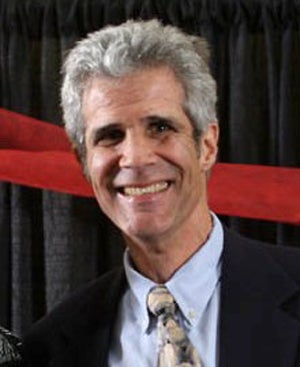
Gene Abrams, Professor, Department of Mathematics, University of Colorado Colorado Springs
Gene Abrams has been a faculty member at UCCS since 1983. He was selected as a President's Teaching Scholar in 1996. He has received various awards over his career, including the UCCS Campuswide Outstanding Teaching Award (1988); the Rocky Mountain Section of the Mathematical Association of America Outstanding Teaching Award (2002); the UCCS Chancellor's Award (2010); and (with J. Sklar) the MAA's Allendoerfer Award (for best article appearing in Mathematics Magazine) (2011).
Abrams' research area is in algebra, specifically in noncommutative rings and their modules. Specifically, since 2005 he has been involved (with other researchers worldwide) in the investigation of the structure of Leavitt path algebras. In addition to conference presentations, he has given more than 75 lectures at universities (nationally and internationally) on his research. He is a coauthor (with Ara and Siles Molina) of the text Leavitt path algebras (Springer Lecture Notes in Mathematics). In the mid-1990's Abrams helped develop the (still ongoing) UCCS MathOnline program. From 2009 through 2013 he directed the Pikes Peak Math Teachers' Circle. He also developed and delivered the mathematical content at Sky Sox Math Youth Day, 2002-2018.
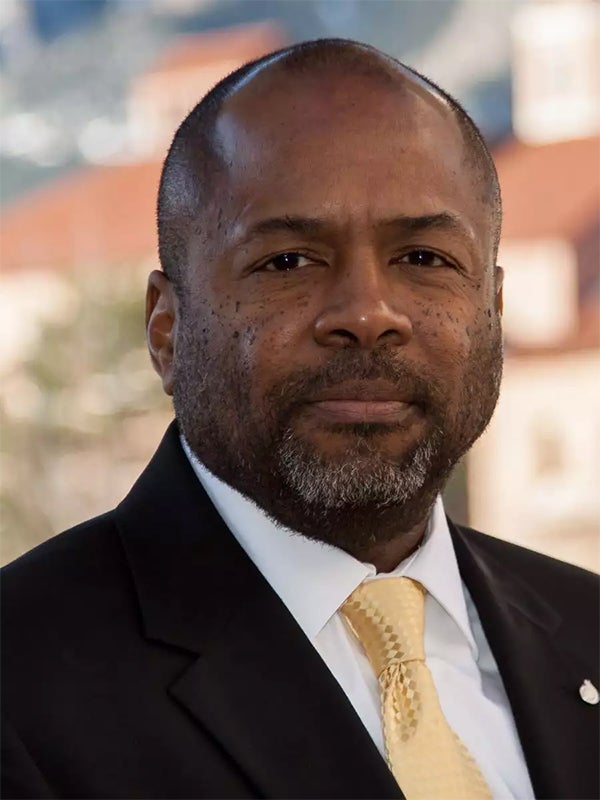 Brian Argrow, Glenn L. Murphy Professor, Ann & H.J. Smead Department of Aerospace Engineering Sciences, University of Colorado Boulder
Brian Argrow, Glenn L. Murphy Professor, Ann & H.J. Smead Department of Aerospace Engineering Sciences, University of Colorado Boulder
Elected to the National Academy of Engineering in 2022, Argrow is widely recognized for his pioneering efforts in the design and deployment of unmanned aircraft systems (UAS) to penetrate tornadoes, supercell thunderstorms and other severe weather events, gathering previously unattainable data. These remarkable results required aerodynamic and sensor sophistication, but also the development and utilization of mobile communications networks that enabled highly sophisticated communication and telemetry in incredibly dynamic environments.
Argrow is one of the first pioneers to study and later utilize mobile ad hoc networks to gather scientific information. He also is well-known for his work on atmospherics and low-density gas dynamics that are highly relevant to the development of super- and hypersonic vehicles.
Argrow’s impact extends beyond the scientific and engineering realms. His work on unmanned aircraft systems has been central in shaping the Federal Aviation Administration’s standards of operation for small UAS. His work continues to inform, and at times change, those FAA UAS flight standards. His severe weather work has been helpful in the development of better models to predict severe weather events, and in so doing, to mitigate the loss of property and life to those events.
Argrow is among the lead architects of the nationally and internationally recognized Smead Aerospace Engineering Sciences undergraduate curriculum. He served as the associate dean of education in CEAS for five years during a period of incredible growth and transformation in the college. Part of the CU Boulder community since 1992, Argrow has been honored with many awards and accolades for outstanding teaching, service and leadership.
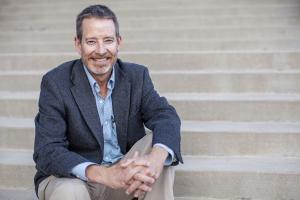
Charles Benight, Professor of Psychology, University of Colorado Colorado Springs
Dr. Charles C. Benight joined University of Colorado at Colorado Springs in 1993 from University of Miami where he completed his postdoctoral training in behavioral medicine. Dr. Benight earned his Ph.D. in Counseling Psychology from Stanford University. Dr. Benight is a Professor of Psychology at UCCS and was the founder and director of the CU-Trauma, Health and Hazards Center for 18 years. Most recently he founded and was named the Executive Director of the Lyda Hill Institute for Human Resilience.
Over the past 30 years Dr. Benight has focused his work on understanding the human capacity to adapt and even thrive following trauma. He is a licensed psychologist focusing on health psychology and trauma recovery. He developed web-based intervention systems for trauma for adolescents and adults. Most recently he customized a recovery website to help with the Covid-19 pandemic called Myresiliencehelp.com and launched the GRIT Resilience Coach training. He published a book in 2016 on secondary trauma and burnout in military mental health providers titled “Secondary Trauma and Burnout in Military Mental Health Providers: Beyond the Battlefield.” His work has been funded through the National Institute for Mental Health, the National Science Foundation, the Department of Defense, and the Substance Abuse Mental Health Services Agency.
He has published over 80 papers and his work has been cited over 10,000 times. He is a recognized leader in disaster mental health both nationally and internationally and served as a Disaster Mental Health Research Mentor for NIMH.
Awards and Honors
- 2018 - Awarded the Distinguished Mentorship Award from the International Society for Traumatic Stress Studies
- 2017 - Nominated for Robert Laufer Award for Outstanding Scientific Achievement International Society for Traumatic Stress Studies
- 2015 - 5 Million Dollar Club
- 2013 - CU President’s Teaching Scholar
- 2012 - Psychological Society of the Pikes Peak Region Cornelia Sabine Award for Outstanding Contribution to Psychology
- 2010 - Million Dollar Club
- 2009 - Faculty Award for Excellence in Research; University of Colorado at Colorado Springs Inventor of the Year
- 2002 - Emerging Leaders System Wide Program
- 1999 - Letters Arts & Sciences Extraordinary Merit Award; Letters Arts & Sciences Outstanding Teacher of the Year
- 1992-1993 - National Heart Lung & Blood Institute: Post-Doctoral Fellow
- 1989-1991 - National Heart Lung & Blood Institute: Pre-Doctoral Fellow
- 1985-1986 - Fulbright Research Scholar to West Germany: Cardiac Rehabilitation
Dr. Benight's website: https://resilience.uccs.edu/meet-the-team/directors/charles-c-benight
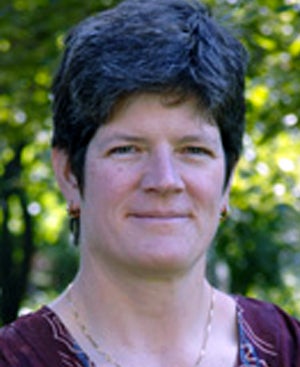
Elizabeth Bradley, Professor of Computer Science, Computer Engineering, University of Colorado Boulder
Elizabeth Bradley holds SB, SM, and PhD degrees from MIT. She has been a member of the Department of Computer Science at the University of Colorado since 1993 and is currently the chair of the Computing Research Association's Computing Community Consortium (CCC). Her research interests include nonlinear dynamics and nonlinear time-series analysis. She has mentored more than 90 graduate, undergraduate, and high-school students and half a dozen postdocs. Aside from being a President's Teaching Scholar, she is a member of the external faculty of the Santa Fe Institute and the recipient of a National Young Investigator award, a Packard Fellowship in Science and Engineering, and a Fellowship at the Radcliffe Institute for Advanced Study.
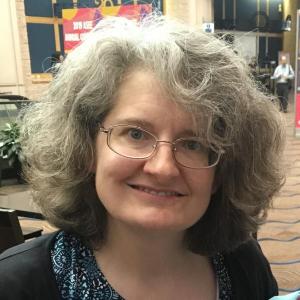 Angela Bielefeldt, Professor of Civil, Environmental & Architectural Engineering, University of Colorado Boulder
Angela Bielefeldt, Professor of Civil, Environmental & Architectural Engineering, University of Colorado Boulder
Angela Bielefeldt has been a faculty member at the University of Colorado Boulder since 1996. Her BS degree is in Civil Engineering from Iowa State University and her MS and PhD degrees are in Civil Engineering from the University of Washington. Bielefeldt currently serves as the Director for the Integrated Design Engineering Program. She was elected as a Fellow of the American Society for Engineering Education (ASEE) in 2019, and her ASEE peer-reviewed conference papers have won awards from the divisions of Environmental Engineering, K-12, Liberal Education / Engineering & Society, Engineering Ethics, First-Year Programs, Civil Engineering, Women in Engineering, Technological Literacy and Philosophy of Engineering, International, and Engineering Leadership Development. Her research currently focuses on an array of engineering education topics including first-year students, ethics, sustainability, and social responsibility. Bielefeldt is a licensed Professional Engineer (P.E.) in Colorado.
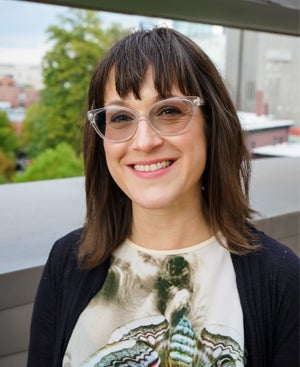
Maria Buszek, Professor of Art History, University of Colorado Denver
Maria Elena Buszek, Ph.D. is a scholar, critic, curator, and Professor of Art History at the University of Colorado Denver, where she teaches courses on Modern and contemporary art.
Her recent publications include the books Pin-Up Grrrls: Feminism, Sexuality, Popular Culture and Extra/ordinary: Craft and contemporary art; contributions to the anthologies Punkademics: The Basement Show in the Ivory Tower and Design History Beyond the Canon; catalogue essays for numerous international exhibitions; and articles and criticism in such journals as Art in America, Art Journal, Flash Art, and TDR: The Journal of Performance Studies. With Hilary Robinson, she edited the 2019 anthology of new writing, A Companion to Feminist Art. She has also been a regular contributor to the popular feminist magazine BUST since 1999. Her current book project, Art of Noise, explores the ties between contemporary feminist art and popular music.
Dr. Buszek is also a prolific independent curator, who has previously worked at the Museum of Modern Art in New York and the Los Angeles County Museum of Art. Recent exhibitions include Danger Came Smiling: Feminist Art and Popular Music at the Franklin Street Works, Inner Ear Vision: Sound as Medium (with Raven Chacon and Robert Aiki Aubrey Lowe) at the Bemis Center for Contemporary Arts, and Sensitive Content (with Alayo Akinkugbe and Helen Beard) at Unit London.
In 2022, Dr. Buszek was inducted into the fellowship of the University of Colorado’s President’s Teaching Scholars. The President’s Teaching Scholars Program honors faculty from the university’s four campuses who “embody teaching, scholarship, creative work and research with excellence in all.”
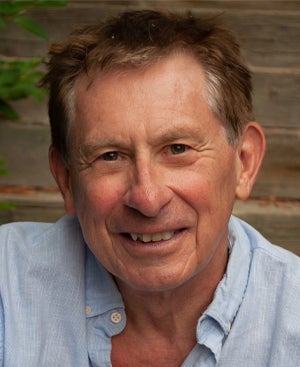
Stanley Deetz, Professor Emeritus, University of Colorado Boulder
Stanley Deetz, Ph.D., is President of Interaction Design for Innovation, and also Professor Emeritus and a President’s Teaching Scholar at the University of Colorado, Boulder. While active at UCB, he was the Director of the Center for the Study of Conflict, Collaboration and Creative Governance and the Peace and Conflict Studies Program. standeetz.org
Deetz is author/co-author of over 150 published essays and several books including Leading Organizations through Transitions, Doing Critical Research, Managing Interpersonal Communication, Transforming Communication-Transforming Business, and Democracy in an Age of Corporate Colonization. His research has focused on conflict management, inter-sector governance processes, micro-practices of power in organizations, and designed interaction processes in relation to collaborative decision-making.
He has been a Senior Fulbright Scholar and is a National Communication Association Distinguished Scholar and a Past-President and Fellow of the International Communication Association. Over the years he has lectured and worked in over 25 countries and has held visiting faculty appointments in Sweden, Denmark, Finland, Germany, Colombia, Mexico, and Brazil as well as at several universities in the United States.
His post-retirement work includes many projects such as improving environmental governance in Brazil; community development in Medellin, Colombia; changing STEM education to support more effective learning and inclusion of women and minorities (through the AAU and NSF); health system responsiveness in Africa (through the CDC); using dialogue and system thinking to improve nuclear power plant safety (through the IAEA); and helping several for-profit companies use inclusiveness and diversity to make decisions that are more profitable, socially responsible and ecologically sustainable.
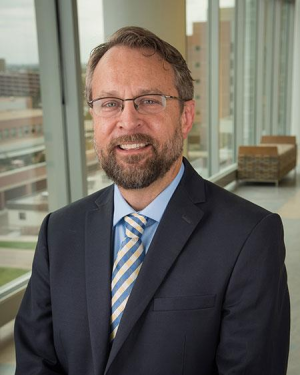
Mark Earnest, Professor of Medicine, Anschutz Medical Campus
Mark Earnest, MD, PhD, Meiklejohn Professor of Medicine and Division Head of General Internal Medicine, was raised in the Appalachian foothills of eastern Tennessee. He completed he BA at Wake Forest University and his MD at Vanderbilt University. He moved to Colorado in 1990 for a medical residency in Internal Medicine which he completed three years later, joining the CU faculty in 1993. He began a part time research fellowship 1995, completing his PhD in Health and Behavioral Science at CU Denver in 2000. The growing inequities and dysfunctions of the health care system lured him away from his intended path of research and into the world of health policy and activism. He served for two years as a Physician Advocacy Fellow with the Open Society Institute, working locally with the Colorado Coalition for the Underserved to increase access to care in Colorado. During his fellowship, he found himself increasingly bridging the worlds of practical health policy and community activism, and medical education and civic professionalism. Upon completion of his fellowship, he led a group of fellow faculty to create the CU LEADS Program – a track within the School of Medicine devoted to developing leadership and advocacy competencies in medical students. The program was launched under funding from HRSA and was sustained for over a decade from extramural funds from a variety of foundations – most significantly, the Colorado Health Foundation. The program continued until curriculum reform rendered it obsolete as most of the competencies that LEADS had pioneered were folded into the standard curriculum.
In 2007, Mark was appointed Director of Interprofessional Education for the Anschutz Medical Campus. In that role, he led an interprofessional group of faculty to found the campus’ interprofessional education programs. The Anschutz Medical Campus was at the forefront of a national movement to develop interprofessional practice competencies in health professions students. Mark continued in this role for seven years before assuming his current position as Division Head of General Internal Medicine (GIM) within the Department of Medicine. With nearly 150 faculty, GIM is the largest division in the Department and is home to 5 GIM ambulatory clinics, the palliative care program, and a variety of research and education programs including a first- in-the-nation Masters Program in Palliative Care.
Mark completed a sabbatical in the spring of 2023 and is currently working on a book describing the practical dynamics of collective action.
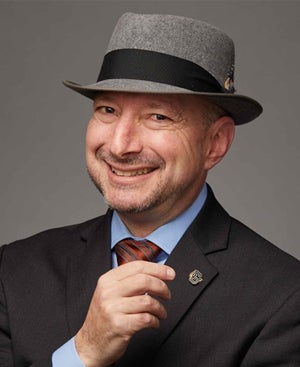
Noah Finkelstein, Professor, Physics, University of Colorado Boulder
Noah Finkelstein is a Professor and Vice Chair (2021-2022) in the department of Physics at the University of Colorado Boulder. He conducts research is in physics education, specifically studying the conditions that support students’ identities, engagement and outcomes in physics – developing models of context. In parallel, he conducts research on how educational transformations get taken up, spread, and sustained. He is a PI in the Physics Education Research (PER) group and was founding co-director of CU’s Center for STEM Learning. He co-directs the national Network of STEM Education Centers, is building the STEM DBER-Alliance, and coalitions advancing undergraduate education transformation. He is involved in education policy serving on many national boards, sits on a National Academies’ STEM education roundtable, is a Trustee of the Higher Learning Commission, is a Fellow of the American Physical Society, and a Presidential Teaching Scholar and the inaugural Timmerhaus Teaching Ambassador for the University of Colorado system.
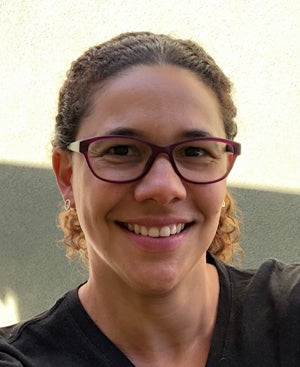
Cerian Gibbes, Associate Professor of Geography & Environmental Studies, University of Colorado Colorado Springs
Dr. Cerian Gibbes joined the University of Colorado Colorado Springs in 2011 after receiving her PhD in Geography from the University of Florida. She is an Associate Professor in the Department of Geography & Environmental Studies. Her curiosity about the environment began in her childhood growing up in a rural community in Trinidad & Tobago. This led to a research trajectory focused on the social and ecological impacts of environmental change, with a particular interest in studying spaces where agriculture and conservation coexist. Her work is primarily situated in Latin America, the Caribbean, and Africa. Dr. Gibbes’ current research, funded by National Geographic, explores the connections between sustainability, land use, and immigrant farming experiences. She is also a two-time Fulbright Fellowship recipient (2014 and 2020). Dr. Gibbes teaches Environmental Remote Sensing, Statistical Analysis in Geography, Urban Sustainability, and Geography of Africa. Additionally, she has co-taught travel courses to Uganda, Rwanda, and Guatemala. In her teaching she seeks to draw from the experience that individuals bring to the class to create an inclusive environment in which curiosity is rewarded, and experimentation regardless of failure or success is valued. She also presently serves as the Director of the Global Intercultural Research Center (GLINT) and on the Student Awards committee for the American Association of Geographers.
Dr. Cerian Gibbes is an Associate Professor in the Department of Geography & Environmental Studies at UCCS. Her research focuses on the social and ecological impacts of environmental change, with a particular interest in studying spaces where agriculture and conservation coexist. Her work is primarily situated in Latin America, the Caribbean, and Africa. She is a two-time Fulbright Fellowship recipient (2014 and 2020). Dr. Gibbes teaches Environmental Remote Sensing, Statistical Analysis in Geography, Urban Sustainability, and Geography of Africa. She has also co-taught travel courses to Uganda, Rwanda, and Guatemala. In her teaching she seeks to draw from the experience that individuals bring to the class to create an inclusive environment in which curiosity is rewarded, and experimentation regardless of failure or success is valued.
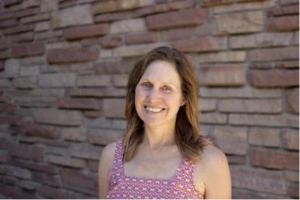
Wendy Glenn

Wendy Glenn
Wendy Glenn, Professor of Literacy Studies, University of Colorado Boulder
Wendy Glenn is Professor of Literacy Studies and Chair of the Secondary Humanities Teacher Licensure program at CU Boulder. Her research centers on literature for young adults and how story can be used to both foster connection and invite disruption in students, teachers, and the learning environments they share. Dr. Glenn’s teaching is guided by the assumption that inviting classroom spaces and genuine student learning are predicated on the creation of a community in which each member feels valued, supported, and capable. When students and teachers work together to build trusting relationships growing from knowledge of and respect for individual needs and interests, opportunities for authentic learning, growth, and humanistic connection are fostered.
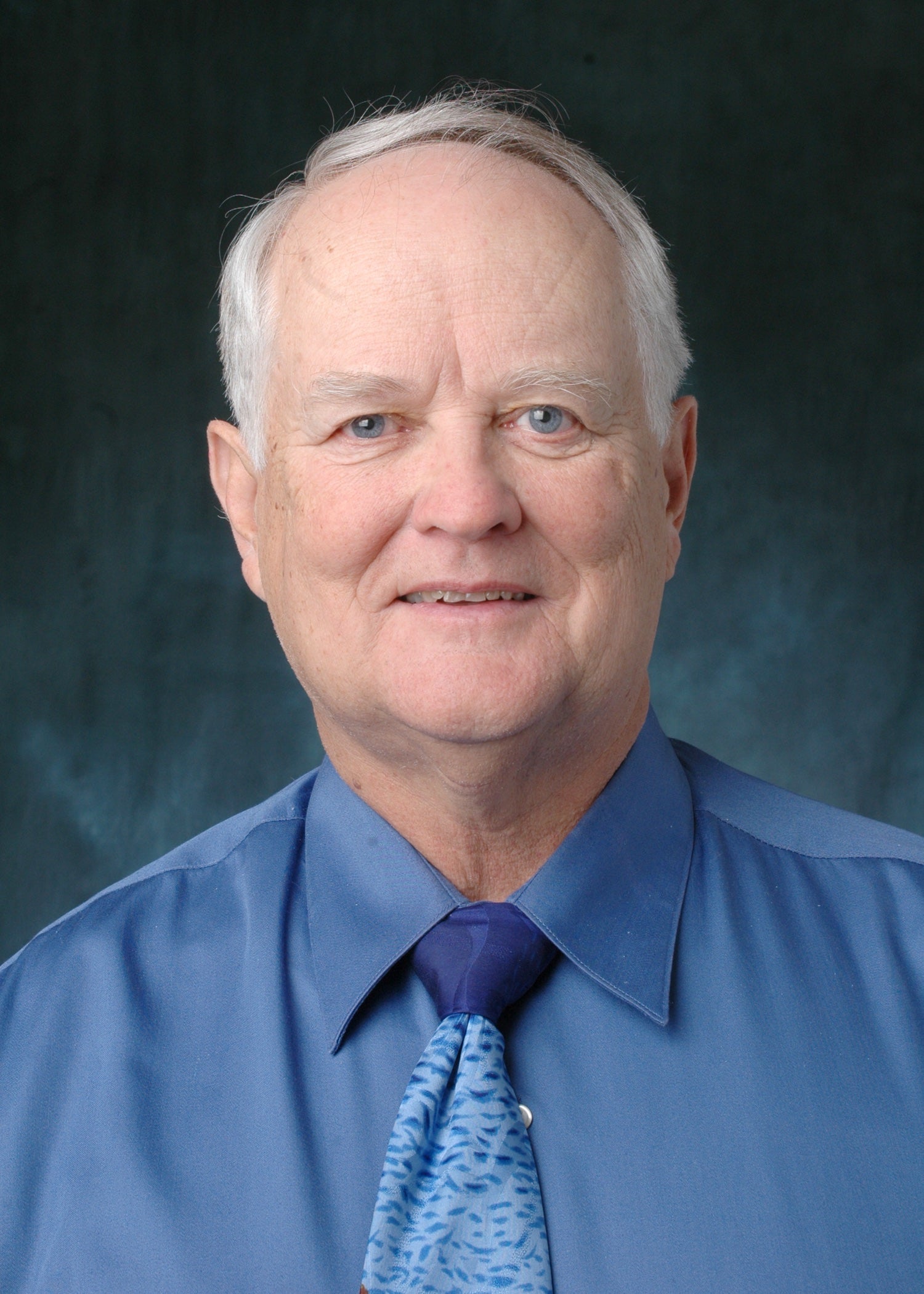
Michael Grant, Professor of Ecology and Evolution, University of Colorado Boulder
Professor of Ecology and Evolution and Vice Provost Emeritus U. of Co. Boulder. Teaching awards: Hazel Barnes, Boulder Faculty Assembly, President's Teaching Scholar, Mortar Board. Most famous biology: Pando, the giant aspen clone now in textbooks, Google maps and dozens of newspaper and TV segments.
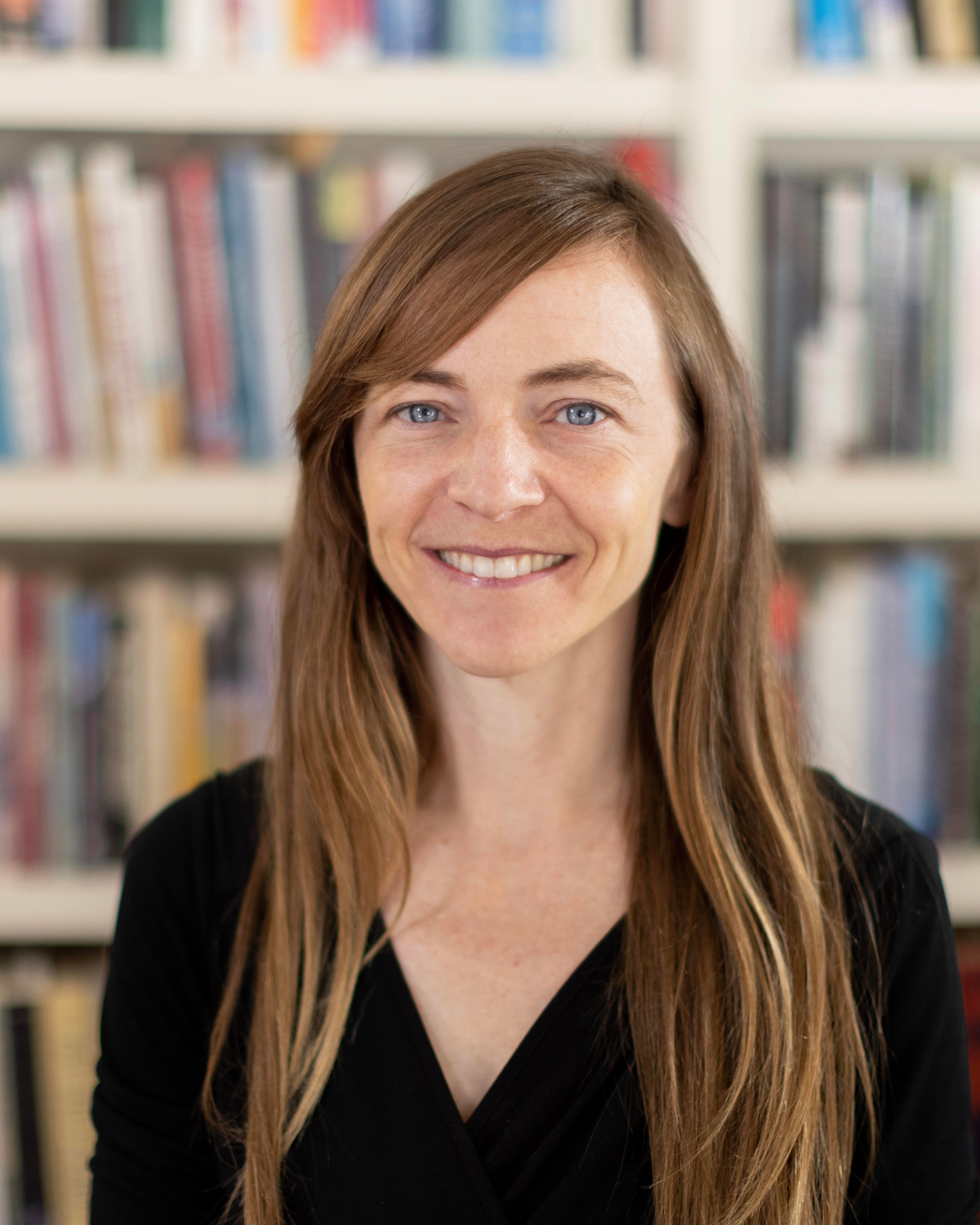 June Gruber, Associate Professor of Psychology, University of Colorado Boulder
June Gruber, Associate Professor of Psychology, University of Colorado Boulder

June Gruber is an Associate Professor of Psychology and Neuroscience at the University of Colorado and Director of the Positive Emotion and Psychopathology Laboratory and was previously an Assistant Professor at Yale University. She received her Ph.D. and B.A. from the University of California Berkeley. Dr. Gruber’s work examines the role of positive emotions in mental illness, and the science of happiness and well-being more generally. She has published over 140 articles and chapters, co-authored Psychology 14th edition, and edited two books including the Oxford Handbook of Positive Emotion and Psychopathology and Positive Emotion: Integrating the Light Sides and Dark Sides. Her research has been recognized by awards including the Association for Psychological Science’s Rising Star Award and the Janet Taylor Spence Award for Transformative Early Career Contributions, the Society for Research in Psychopathology's Early Career Award, and NARSAD Young Investigator Awards. Dr. Gruber is invested teaching and mentoring future generations of students and has created a free Coursera #TalkMentalIllness Coursera course, the Experts in Emotion Interview Series at Yale University, and co-writes a column for young scientists in Science Careers, and her efforts have been recognized by the 2023 Cogswell Award for Inspirational Instruction, 2022 Boulder Faculty Assembling Excellence in Teaching and Pedagogy Award, and a 2020 UROP Outstanding Faculty Mentor Award. She is thrilled to join the PTSP community!
- Webpage: http://gruberpeplab.com/junegruber
- Twitter: @junegruber
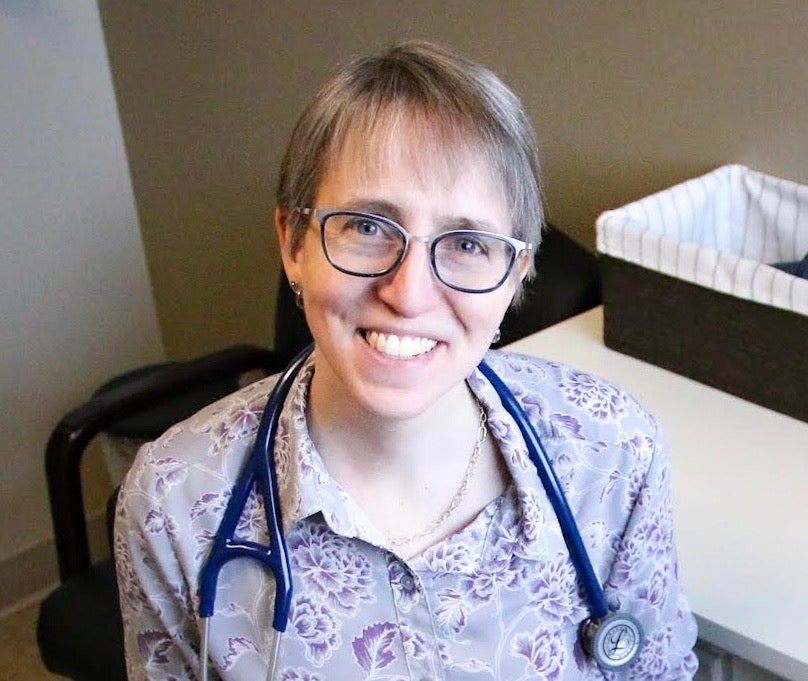 Jeannette Guerrasio, Professor of Medicine, University of Colorado, Anschutz Medical Campus
Jeannette Guerrasio, Professor of Medicine, University of Colorado, Anschutz Medical Campus
Jeannette Guerrasio, MD, is a Professor of Medicine at the University of Colorado Anschutz Medical Campus. She developed a pioneering approach to improve the educational experience of medical learners by creating individualized learning plans for struggling residents and medical students. She served as the Director of Remediation for the School of Medicine for 12 years and is a member of the Academy of Medical Education. She authored Remediation of the Struggling Medical Learner, editions 1 and 2, and Remediation Case Studies: Helping the struggling learner. Her research explores remediation methods and outcomes. In addition to education, she is equally committed to the clinical care of patients, with expertise in both adult medicine and geriatrics, having published Embrace Aging: Conquer Your Fear and Enjoy Added Years.
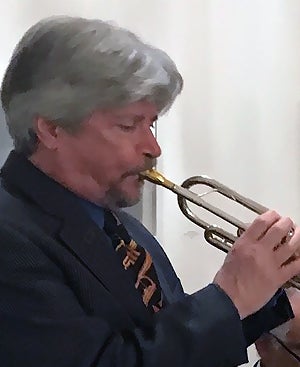
Mitchell M. Handelsman, Professor, Psychology, University of Colorado Denver
Mitchell M. Handelsman, Ph.D., is Professor of Psychology and CU President's Teaching Scholar at the University of Colorado Denver, where he has been since 1982. Mitch earned his Ph.D. from the University of Kansas in 1981. He is a licensed psychologist and a Fellow of the American Psychological Association (APA). He served for a year (1989-1990) in Washington DC as an APA Congressional Science Fellow. Mitch has won numerous teaching awards, including the 1992 CASE (Council for the Advancement and Support of Education) Colorado Professor of the Year Award, the Society for the Teaching of Psychology’s Excellence in Teaching Award in 1995, and the APA Ethics Committee Ethics Educator Award in 2021.
Mitch has co-authored two ethics books, Positive Ethics for Mental Health Professionals (second edition, 2021; with Sharon Anderson), and Ethical Dilemmas in Psychotherapy: Positive Approaches to Decision Making (2015; with Sam Knapp and Michael Gottlieb). He is an associate editor of the APA Handbook of Ethics in Psychology (2012). His blog for PsychologyToday.com (“The Ethical Professor”) focuses on ethical and teaching issues. He has published over seventy refereed articles and book chapters, many on ethics- and teaching-related topics. His blog for PsychologyToday.com (“The Ethical Professor”) focuses on ethical and teaching issues. He is co-author of The Life of Charlie Burrell: Breaking the Color Barrier in Classical Music. In his spare time he plays jazz trumpet.

Paul Harvey, Professor, Department of History, University of Colorado Colorado Springs
Paul Harvey, Ph.D. is a Distinguished Professor of History and Presidential Teaching Scholar at UCCS where he has taught since 1996. He researches, writes, and teaches in the field of American history from the 16th century to the present. He is the author/editor of thirteen books and numerous articles. In 2006, Harvey received the Faculty Award for Excellence in Research from the University of Colorado. In 2008, Harvey received the Outstanding Teaching Award from UCCS.
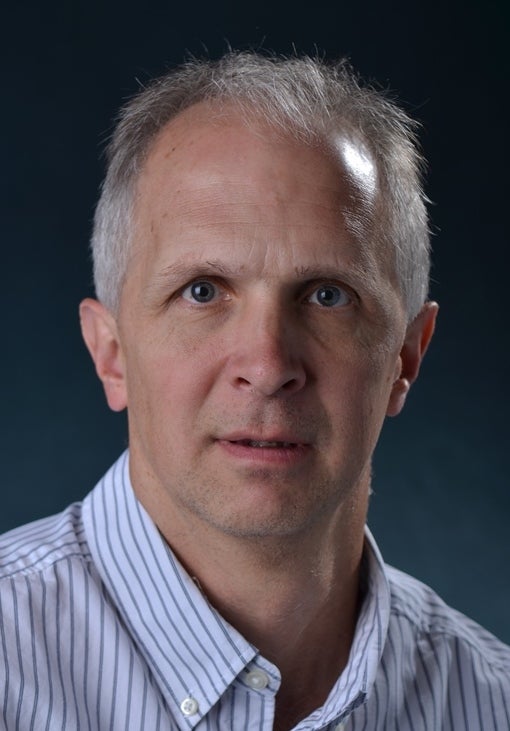
David Klaus, Professor, Aerospace Engineering Sciences, University of Colorado Boulder
David Klaus received his BS in Mechanical Engineering from West Virginia University in 1984. He started his career as a shuttle launch controller at the NASA Kennedy Space Center in Florida, later moving to Mission Control at the Johnson Space Center in Houston. In 1990, Klaus joined BioServe Space Technologies as a Research Assistant and began graduate studies at the University of Colorado, where he obtained his MS and PhD in Aerospace Engineering Sciences. Dr. Klaus spent 1994-95 in Germany as a postdoctoral Fulbright Scholar and was a two-time NASA Astronaut Candidate finalist in 1998 and 2000. Professor Klaus has been on the faculty in the CU Aerospace Department since 2002. His academic career has been focused on establishing and internationally expanding a graduate curriculum in Bioastronautics, the study and support of life in space. His teaching recognition includes the AIAA Rocky Mountain Section Educator of the Year Award in 2004, the Boulder Faculty Assembly’s Excellence in Teaching Award in 2007, the College’s Charles Hutchinson Memorial Teaching Award in 2011, and the Aerospace Department’s Outstanding Graduate Teaching and Mentoring Award in 2014. Professor Klaus is a Fellow of the American Institute of Aeronautics and Astronautics. He was selected as a CU President’s Teaching Scholar in 2011.
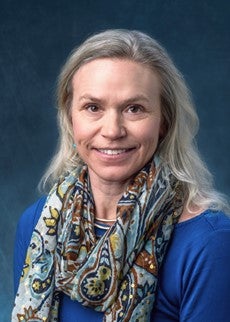 Jenny Knight, Associate Professor of Molecular, Cellular and Developmental Biology
Jenny Knight, Associate Professor of Molecular, Cellular and Developmental Biology

Jenny Knight has a B.A. in Biology from Cornell University, a Ph.D. in Neuroscience from the University of Michigan, and worked as a postdoctoral fellow in Developmental Genetics at the University of Colorado Boulder before joining the faculty. She has been teaching undergraduates at all levels for over twenty years, ranging from freshmen-level genetics to senior-level developmental biology, along with graduate courses in pedagogy. After transitioning from lab bench to biology education research in 2004, she has developed concept assessments, studied the benefits of clickers and peer discussion, investigated how students solve complex problems in genetics, and is currently working on how to stimulate self-regulation and metacognition. She has also worked extensively in faculty development, coordinating the MCDB Science Education Initiative at CU and the Mountain West Regional National Academies Summer Institute on Undergraduate Education in Biology. She has served as the president of the Society for the Advancement of Biology Education Research (SABER) and is the current Editor in Chief for the open access journal CourseSource.
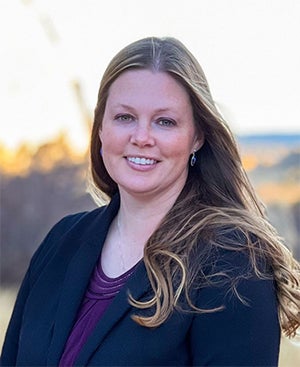
Anna Kosloski, Associate Professor, School of Public Affairs, University of Colorado Colorado Springs
Anna Kosloski is an Associate Professor in the School of Public Affairs at the University of Colorado Colorado Springs (UCCS) where she directs the Bachelor of Criminal Justice program. Dr. Kosloski joined the UCCS team in 2012 and has taught a range of graduate and undergraduate courses covering the foundations of the criminal justice system, criminal justice policy, crime theory, and a variety of topics on violence and victimization. Dr. Kosloski has also co-facilitated study abroad courses and is a co-creator of the criminal justice learning community. She has been a mentor for students interested in research and previously served as the director of the Undergraduate Research Academy (URA), shepherded graduate student theses and capstone projects, collaborated with students on grant funded research projects, and co-authored scholarly works with students. Her own research focuses on the intersections of race, class, gender, and crime. Her recent projects include an examination of Adverse Childhood Experiences and participation in the commercial sex industry, gender differences among buyers in the commercial sex industry, and the impact of historical trauma on Murdered and Missing Indigenous Peoples (MMIP). She has recently published in Women & Criminal Justice, Child Abuse & Neglect, and the Journal of Criminal Justice. Dr. Kosloski believes in bridging professional organizations and academia through collaborative research. She regularly partners with criminal justice and nonprofit organizations on research and program evaluations. These scholarly collaborations have been awarded over 5 million dollars in funding. Dr. Kosloski was recognized in 2016 as the UCCS Outstanding Teacher and is honored to be joining a dedicated team of teacher-scholars through the President’s Teaching Scholars Program.
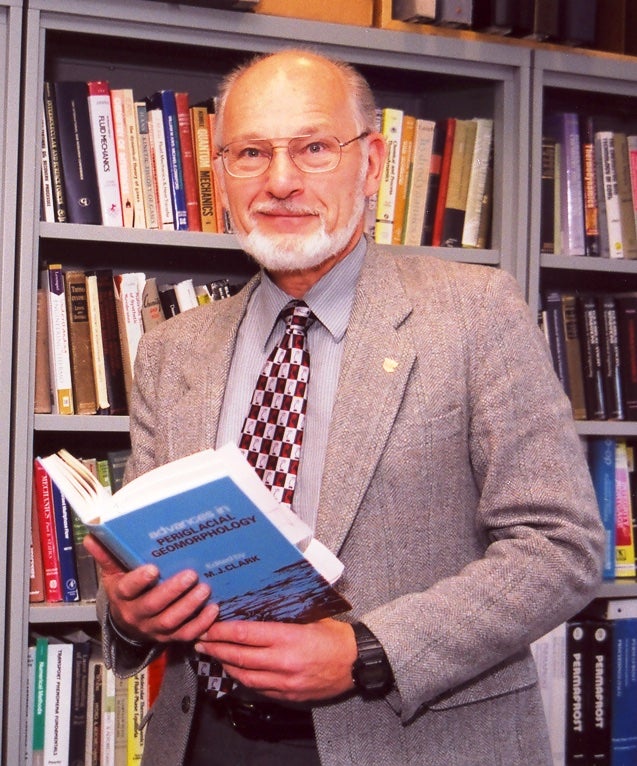
William B. Krantz, Professor Emeritus, Chemical and Biological Engineering, University of Colroado Boulder
I was named a President’s Teaching Scholar (PTS) in 1990 during the second year of the PTS program. I served on the faculty at the University of Colorado (CU) in the Department of Chemical Engineering (now the Department of Chemical and Biological Engineering) from 1968 to 2000. I took early retirement from CU and accepted the Rieveschl Ohio Eminent Scholar Chair in the Department of Chemical Engineering at the University of Cincinnati where I served until 2005. I then accepted the Isaac M. Meyer Chair in the Department of Chemical and Biomolecular Engineering at the National University of Singapore where I served until 2008. I then accepted a Visiting Professor position in the Singapore Membrane Technology Center at Nanyang Technological University in which capacity I continue to serve.
While at CU I served as Coordinator for the Faculty Teaching Excellence Program in which capacity I worked with faculty members in all departments across the campus who wanted to utilize the services of this program to improve their teaching. These services included videorecording their classroom lectures and one-on-one consultation with constructive feedback.
I have been the recipient of Fulbright Fellowships at Istanbul Technical University in Turkey (1974-75), Aachen Technical University in Germany (1981-82), and the Indian Institute of Science (1989), a NATO Senior Fellowship in Science at the University of Essex in England (1975), and a Guggenheim Fellowship at Oxford in England (1988-89).
I am the author or co-author of over 250 peer-reviewed papers, 17 of which are on education and pedagogy. I have co-edited three research monographs and authored two books, one of which is “Presenting an Effective and Dynamic Paper – A Guidebook for Novice and Experienced Speakers in a Multicultural World” published by Elsevier in 2016 (ISBN 978-0-12-805418-5).
I have been fortunate to have lived a long life and the opportunities to remain professionally active for over 50 years during which time I received several honors. Being named a President’s Teaching Scholar is the most meaningful honor that I have received since it recognizes why I became an educator.
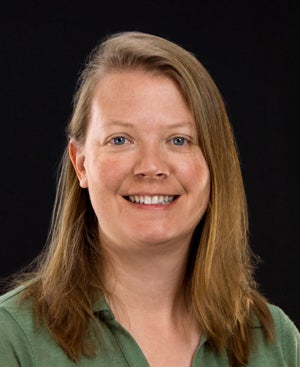
Heather Lewandowski, Professor of Physics, University of Colorado Boulder
Heather Lewandowski received her B.S. in physics from Michigan Tech in 1997 and her Ph.D. in physics from the University of Colorado in 2002. She was then an NRC Postdoctoral fellow at the National Institute of Standards and Technology in Boulder. She is currently a professor and associate chair of physics at the University of Colorado, and a fellow of JILA. She leads two research programs, one in experimental molecular physics, and the other in physics education research. Her molecular physics research efforts focus on studying interactions and reactions of cold, chemically important molecules and ions. Her physics education research program studies ways to increase students’ proficiency in scientific practices such as using models and quantitative reasoning in experimental physics.
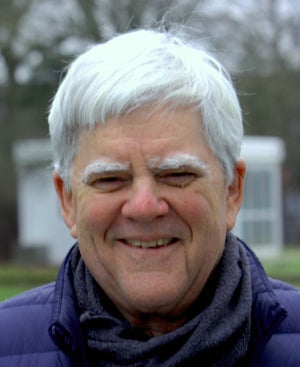
Clayton Lewis, Professor of Computer Science, University of Colorado Boulder
Clayton Lewis is Emeritus Professor of Computer Science at the University of Colorado Boulder. Lewis served previously as Co-Director for Technology for the Coleman Institute for Cognitive Disabilities, and Fellow of the Institute of Cognitive Science, at CU, and as technology advisor to the director of the National Institute for Disability and Rehabilitation Research, US Department of Education. He is well known for his research on evaluation methods in user interface design. Two methods to which he and his colleagues have contributed, the thinking aloud method and the cognitive walkthrough, are in regular use in software development organizations around the world. He has also contributed to cognitive assistive technology, to programming language design, to educational technology, and to cognitive theory in causal attribution and learning.
Before joining the University of Colorado, Lewis was Manager of Human Factors at IBM’s Watson Research Center, where he was a member of the research staff from 1970 to 1973 and 1979 to 1984. He holds degrees from Princeton, MIT, and the University of Michigan. He has been honored by appointment to the ACM SIGCHI Academy, by the SIGCHI Social Impact Award, and by the Strache Leadership Award (CSUN Assistive Technology Conference).
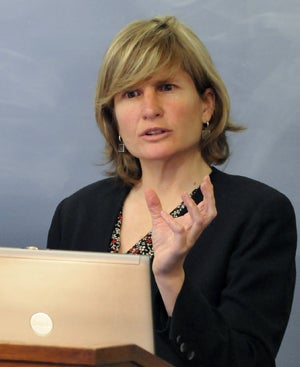
Helen Norton, Distinguished Professor, University of Colorado School of Law, University of Colorado Boulder
Helen Norton is University Distinguished Professor and Rothgerber Chair in Constitutional Law at the University of Colorado School of Law. Her scholarly and teaching interests include constitutional law and civil rights law. Before entering academia, Professor Norton served as Deputy Assistant Attorney General for Civil Rights at the U.S. Department of Justice, and as Director of Legal and Public Policy at the National Partnership for Women & Families, and she currently serves as Special Counsel on Constitutional and Civil Rights for Colorado's Attorney General. She has been honored with the Excellence in Teaching Award on multiple occasions and appointed as a University of Colorado Presidential Teaching Scholar. Cambridge University Press recently published her book, “The Government’s Speech and the Constitution,” and her articles have appeared in the Duke Law Journal, Northwestern University Law Review, Stanford Law Review Online, and the Supreme Court Review, among other fine journals.
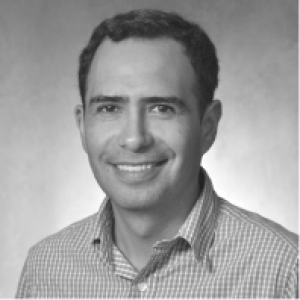
Marcelo Perraillon, Associate Professor of Health, Systems, Management & Policy, University of Colorado Anschutz Medical Campus
Marcelo Perraillo is an associate professor in the Department of Health, Systems, Management & Policy at the University of Colorado Anschutz Medical Campus, with a secondary appointment in the Economics Department at the Denver campus. His research focuses on the evaluation of the effects of healthcare policy on costs, quality, and outcomes. His areas of interest include long-term care, Medicare/Medicaid policy evaluation, and cancer care. Much of his work involves statistical modeling using large medical claims datasets and methods to obtain causal estimates using observational data. Before obtaining his doctoral degree at the University of Chicago, focusing on health economics and biostatistics, he was a researcher at the National Bureau of Economic Research (NBER) in Cambridge, Massachusetts. He co-directs the Population Health Share Resources core at the University of Colorado Comprehensive Cancer Center and the doctoral program on health economics, a partnership between his department in the Anschutz campus and the economics department in the Denver campus.
He teaches graduate-level classes on statistical/econometrics methods, economic evaluations, and a class on health economics. He is interested in teaching methodological classes to students from different fields and levels of mathematical preparation, which, in his experience, requires a combination of approaches to convey how a solid theoretical understanding of methods prepares students to apply them to new research questions.
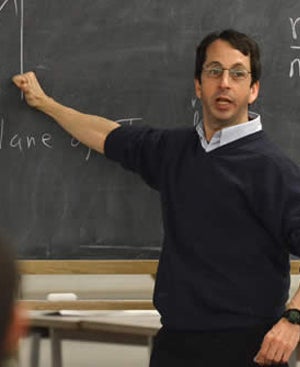
Steven Pollock, Professor of Physics, University of Colorado Boulder
Steven Pollock, Ph.D. specializes in Physics Education Research, including issues of teacher preparation, large-scale classes, and upper-division classes. Dr. Pollock studies student learning in large scale physics classes, and the constraints and opportunities involved in replicating "proven" curricular practices, as well as issues of gender gaps in introductory physics. He heads the K-12 Research Team for an NSF-funded research project to study the efficacy of the Learning Assistant program for preparing highly qualified teachers (the Learning Assistant model for Teacher Education in Science and Technology (LATEST) Research project) He is engaged in studies of how educational models can be extended to the upper division, including research and development of materials, curriculum, and assessment tools in Electricity and Magnetism and Quantum Mechanics.
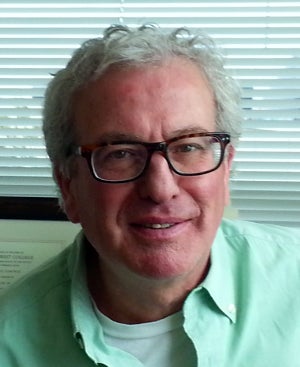
Raphael (Raphi) Sassower, Professor of Philosophy, University of Colorado Colorado Springs
Raphael (Raphi) Sassower is Professor of Philosophy at the University of Colorado, Colorado Springs and the Council Chair of the CU President’s Teaching Scholars Program. His interests traverse disciplinary boundaries from postmodern technoscience and critical rationalism to political economy and neo-Marxism. Among his books are The Specter of Hypocrisy (2020), The Impact of Critical Rationalism (2018, co-edited with Nathaniel Laor), The Quest for Prosperity (2017), Democratic Problem-Solving (2017, co-authored with Justin Cruickshank), Compromising the Ideals of Science (2015), The Price of Public Intellectuals (2014), and Sports and Religion in American Culture (2014, co-authored with Jeff Scholes). He is the founding president of the AAUP Chapter at UCCS (2016).
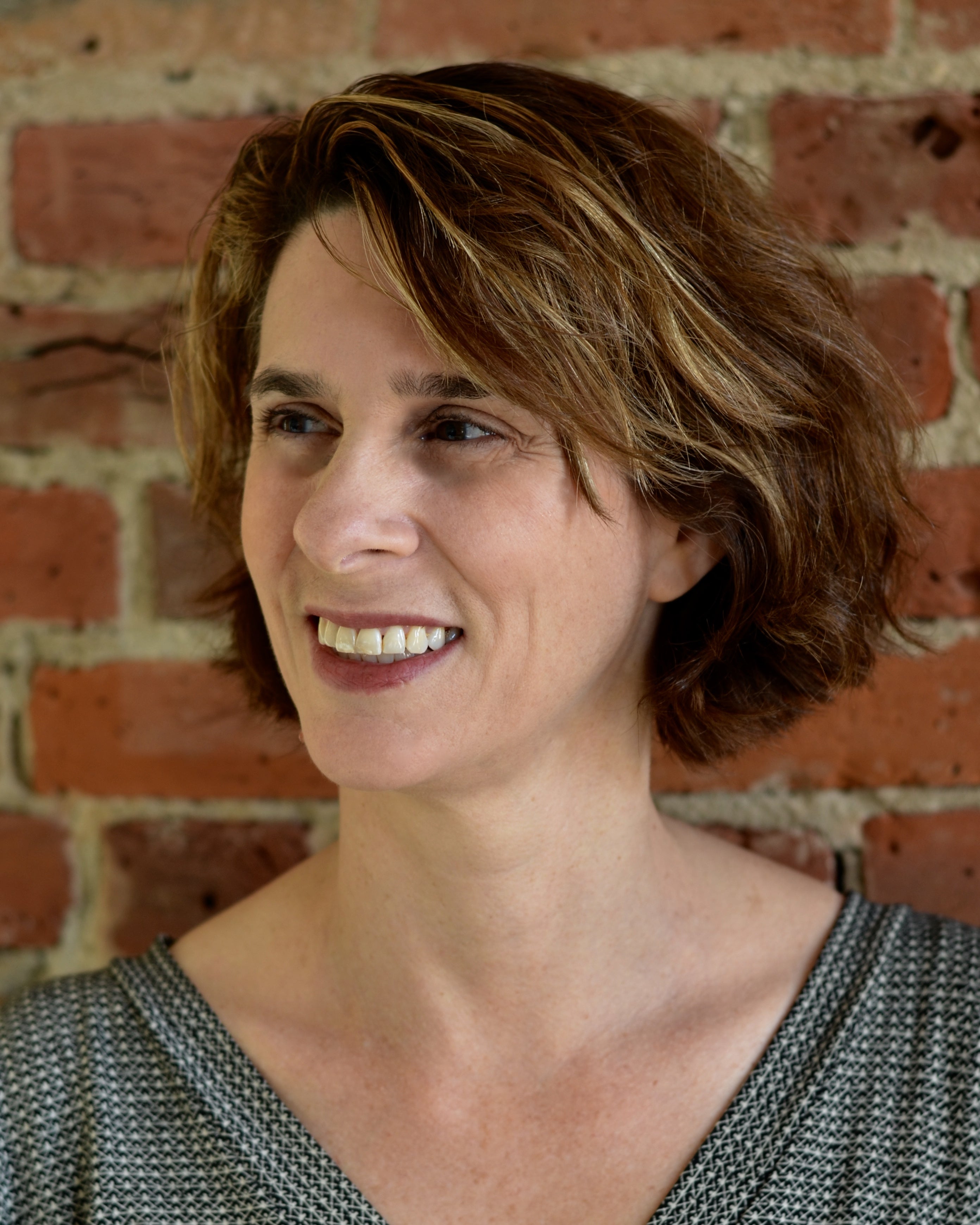
Gillian Silverman, Associate Professor of English, University of Colorado Denver
Gillian Silverman is Graduate Director and Associate Professor of English at the University of Colorado Denver. She is the author of The New Female Antihero: The Disruptive Women of Twenty-First-Century US Television (U of Chicago, 2022) and Bodies and Books: Reading and the Fantasy of Communion in Nineteenth-Century America (U Penn Press, 2012). Her work has appeared in PMLA, American Literature, American Literary History, Signs, and Feminist Media Studies among other venues. She has also written for The New York Times, Slate, The Los Angeles Times, Newsweek, and The New York Observer.
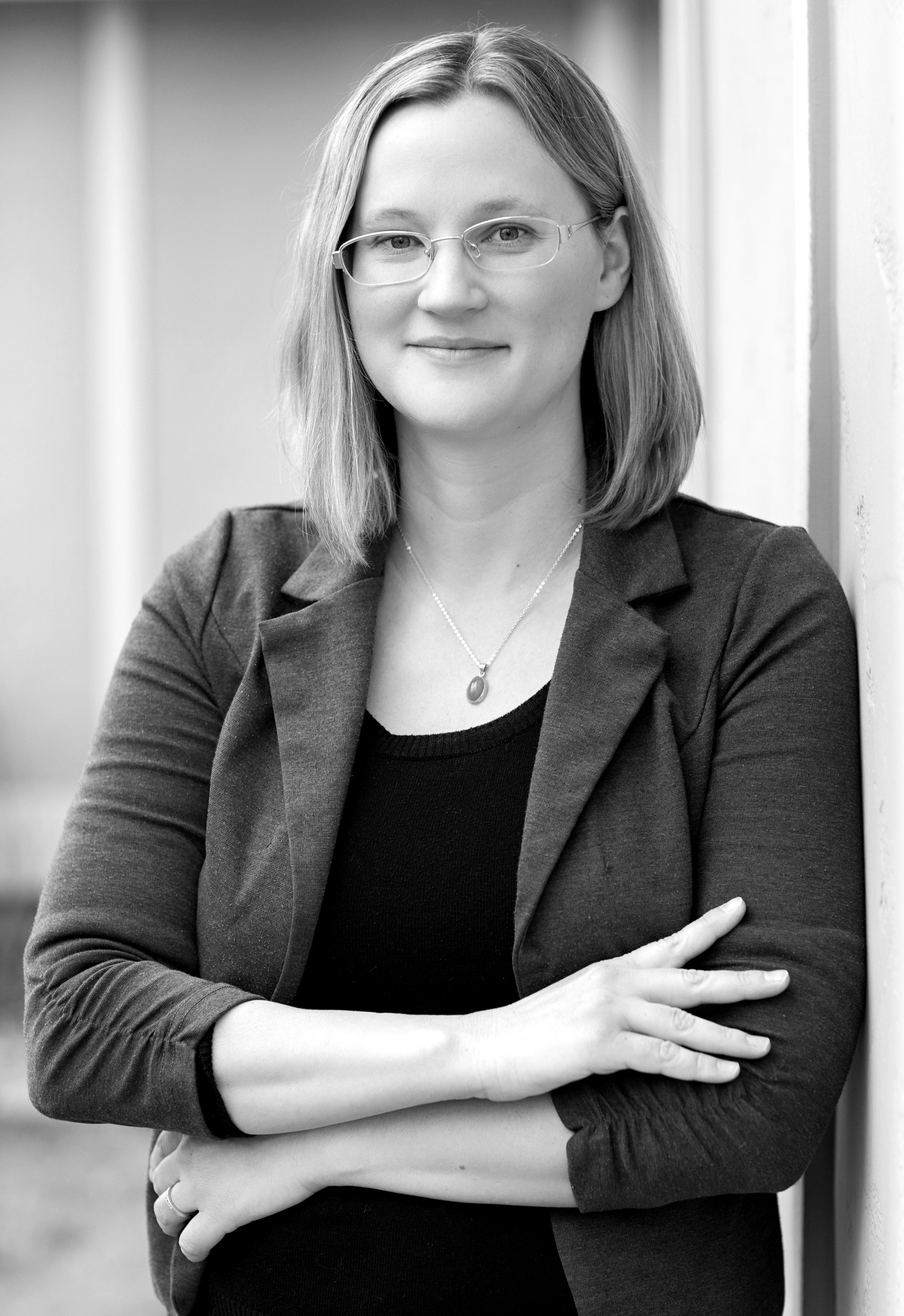 Sarah Wilson Sokhey, Associate Professor of Political Science, University of Colorado Boulder
Sarah Wilson Sokhey, Associate Professor of Political Science, University of Colorado Boulder

Sarah Wilson Sokhey is an Associate Professor in the Department of Political Science at the University of Colorado Boulder, the founding director of Studio Lab for Undergrad Research, and the director of graduate training at Institute of Behavioral Science at CU Boulder. Her research focuses on the interplay between politics and economics with a focus on social policies like pensions and higher education. Her work has been published in various outlets including Party Politics, Europe-Asia Studies, and Economics & Politics, and has received support from the International Research & Exchanges Board (IREX) and the Social Science Research Council (SSRC). She has contributed to the Monkey Cage blog at the Washington Post and is a member of the PONARS Eurasia group, a network of over 100 scholars studying the region.
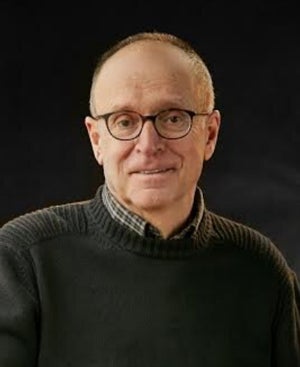
Richard VanDeWeghe, Emeritus Professor of English, University of Colorado Denver
Richard VanDeWeghe has published three books—Jimmy Quinn (2018), historical fiction and Book One in the Traverse City State Hospital Series (Jimmy Quinn was nominated for the Michigan Notable Books Award and the Next Generation Indie Book Award); Lucy Greene (2020), historical fiction that is Book Two in the Series; and Engaged Learning (2009), a theory of instruction and practical guide for learning across the curriculum.
He is Emeritus Professor of English from the University of Colorado Denver, where he was awarded Outstanding Teacher of the Year in the College of Arts and Sciences and campus-wide Teacher of the Year; and selected as a university-wide Presidents Teaching Scholar. He was also Site Director and Field Director for the National Writing Project. Now retired from the university and living in Traverse City, Michigan, he writes historical fiction.
He engages with readers at online and in-person book clubs and in bookstores; and he is a frequent guest at meetings of historical societies and libraries, where he presents slideshows on the history of the Traverse City State Hospital as well as on how to write historical fiction.




